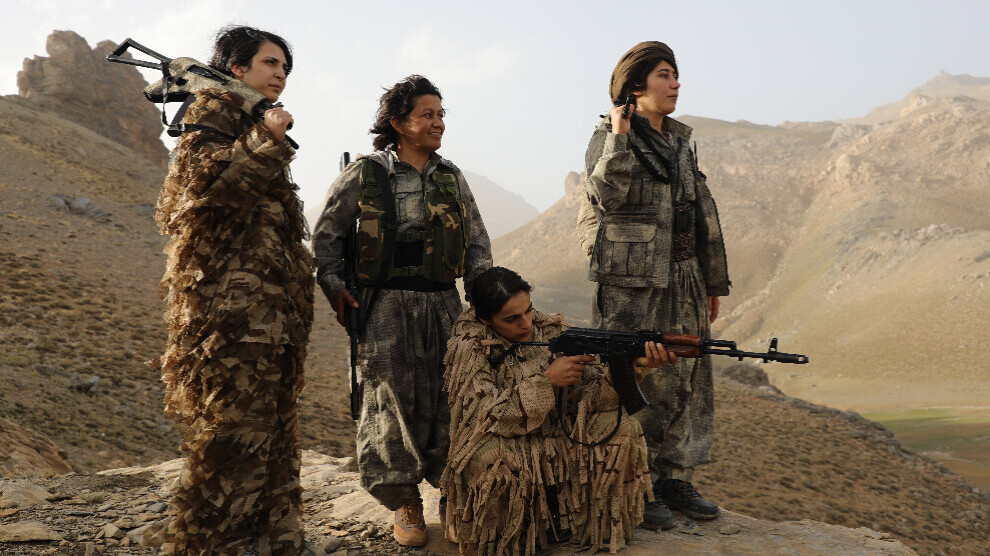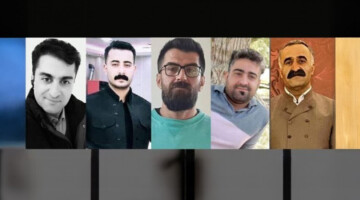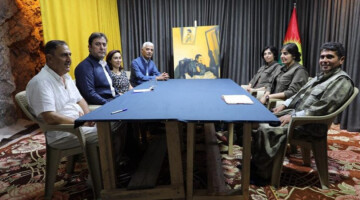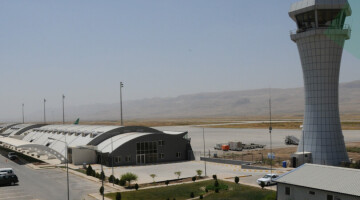Neither weapons and war, nor the politics and policies of states, or the poisonous air that state regimes emit into the universe. Nor the effort to make sense of the simplification of extraordinary evils. Revolutionism, fighting for freedom...Feeling the pain of others and many other noble reasons are behind choosing revolutionism, being a guerrilla, being a freedom fighter of your people...
She's not twenty-five yet. She looks just like the soil she grew up on. She remembers what she did and what she had to do. She's aware of everything. The way she walks, the heavy and upright smile on her face. Her face resembles the most bottom soil of a geography. Dry and pure. Her skin is like the red earth, the most fertile soil in Kurdistan.
The sweat on her forehead clings together and goes down faster. I seemed to recognise her, from the TV. But then her face was covered. ‘We've never met, have we?’ I asked. “No, but I know you, you're the pressman,” she said. She smiled when a female guerrilla next to her said, ‘He is probably writing the news about this in his head while you are talking’.
In this age when people tend to consume even themselves with the mortal world, not seeing these warriors who walk after their existence with love is probably turning your back on being human. Either she knows the questions I am going to ask, or her nature is such. So comfortable, self-confident and faithful. ‘Do you know what I'm going to ask,’ I said, ’No, this is our life. It's been four years, I know everything about it like the back of my hand, that's why I'm comfortable.’ The female guerrilla who knew her already said, ’She has always been like that. She is cold-blooded’.
‘I saw you on television, speaking about the weapons that the guerrillas removed from the invaders during the revolutionary operation. You even made an ironic remark that the Turkish army, an army of such low quality, should be expelled from NATO.’ She smiled and said she was joking. ‘NATO forces are already waging this war,’ she said. She also told me a bit about the situation there. I listened attentively. She told me a lot. Her words, her eyes. Some of them I wrote, some of them I lived.
"Now you are here, on another hill, in another area, in another camp. What do you miss most about the resistance tunnels?" I asked. She answered without hesitation: ‘Everything. I stayed there for four years. I got to know the mountains there, the enemy, my comrades, comradeship, fighting, battle, even war. Maybe even life. When you look at it from here, you think there is always war, but actually there is life there. We read books, we stand guard, we go to action. We discuss tactics, we work, we question. Everyday life is like that. Fighting, carrying out action is what you must do anyway. During the day we endeavour to receive training. The comrades cut their hair because the enemy used chemicals. My hair was not very long, but I also cut it to support them. This is the middle of all realities. On special occasions or when we organise actions, which is when we are at our most moral moments, we make small gifts to our other comrades in the war with what we have on those days. We make a note of these days in our diaries. I will recommend it again, to go there to be with my comrades. Because I feel alive there.”













